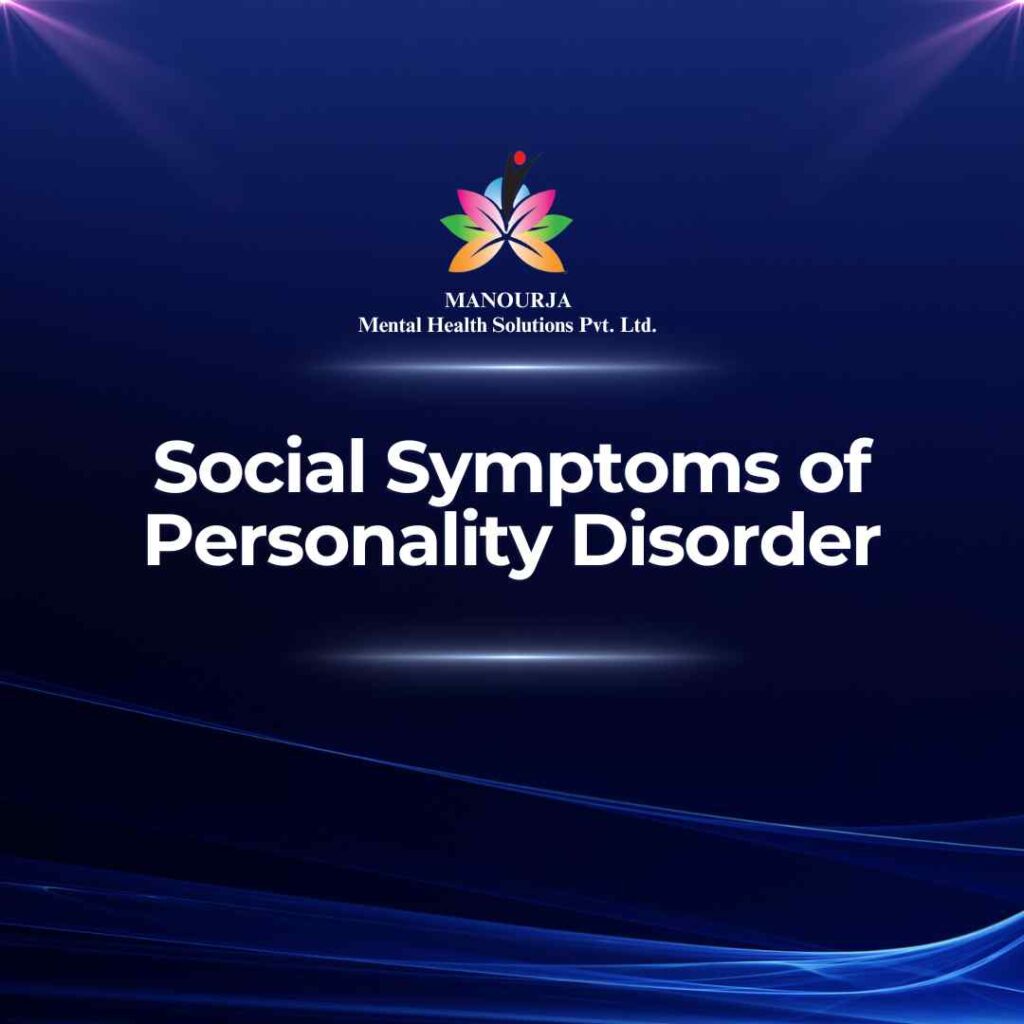Social Symptoms of Personality Disorder

Personality disorders profoundly affect social interactions and behaviors, leading to distinct social symptoms that can vary by the type of disorder. These symptoms often impair an individual’s ability to form and maintain healthy relationships and function effectively in social settings.
Here’s a detailed look at some of the social symptoms associated with different personality disorders:
- Social Inhibition: Individuals are extremely shy and feel inadequate, which makes them very sensitive to criticism or rejection. This leads to avoidance of social situations for fear of being embarrassed or ridiculed.
- Reluctance to Engage with New People: Avoiding relationships unless they are certain of being liked; reluctance to get involved with people unless they are sure of a warm welcome.
Antisocial Personality Disorder
- Disregard for Others: A lack of empathy and a tendency to disregard the feelings, rights, and suffering of others.
- Manipulative Behavior: Exploiting social situations and relationships for personal gain, often without concern for the harm they might cause others.
- Deception: Frequent lying or conning others for personal profit or pleasure.
Borderline Personality Disorder
- Unstable Relationships: Relationships that are intense and highly variable, often swinging from extreme closeness and love (idealization) to extreme dislike or anger (devaluation).
- Fear of Abandonment: Extreme reactions to real or perceived abandonment, which can include frantic efforts to avoid being left alone.
- Inappropriate Anger: Intense, inappropriate anger or difficulty controlling anger (e.g., frequent displays of temper, constant anger, recurrent physical fights).
Narcissistic Personality Disorder
- Lack of Empathy: Difficulty recognizing or identifying with the feelings and needs of others.
- Need for Admiration: Requires excessive admiration and attention to bolster self-esteem.
- Arrogance in Social Behaviors: Arrogant behavior or attitudes, often coming across as snobbish or disdainful.
- Detachment from Social Relationships: Prefers to be alone and chooses solitary activities, with little desire for sexual or intimate relationships.
- Emotional Coldness: Shows emotional coldness, detachment, or flattened affectivity, appearing indifferent to praise or criticism.
- Suspiciousness: Unjustified suspicion of others’ motives, which can result in reluctance to confide in others or paranoid interpretations of benign remarks.
- Perceived Attacks on Character: Perceives attacks on their character or reputation that are not apparent to others, and is quick to react angrily or to counterattack.
Histrionic Personality Disorder
- Attention-Seeking: Uncomfortable in situations where they are not the center of attention, often using their physical appearance or provocative behavior to draw attention.
- Inappropriately Seductive or Provocative: Displays excessively seductive or provocative behavior in interactions that are not appropriate for the context.
Dependent Personality Disorder
- Difficulty Making Decisions: Requires excessive advice and reassurance from others to make everyday decisions.
- Submissive Behavior: Excessive need to be taken care of, leading to submissive and clinging behavior and fears of separation.
These social symptoms can create significant challenges in personal and professional relationships, often leading to social isolation or conflict. Effective treatment, including psychotherapy, is crucial for managing these symptoms and improving social functioning.
At MANOURJA, we believe in the transformative power of counseling. Our experienced therapists offer a safe and supportive space where you can explore your thoughts, emotions, and challenges. Through personalized counselling sessions, we’ll work together to develop coping strategies, build resilience, and achieve lasting positive change. Discover the path to a healthier, happier you with MANOURJA counselling services.
MANOURJA Rehabilitation Services
At MANOURJA, we’re dedicated to helping you in rebuild your life, after difficult times. Our rehabilitation services focus on understanding what you need to move forward, whether you’re recovering from addiction, trauma, or any psychological – social challenges. We create personalized plans, that are all about helping you, regain your strength and find hope again. With a caring team by your side, you’ll have the support to make real progress and take steps toward a brighter, healthier future
